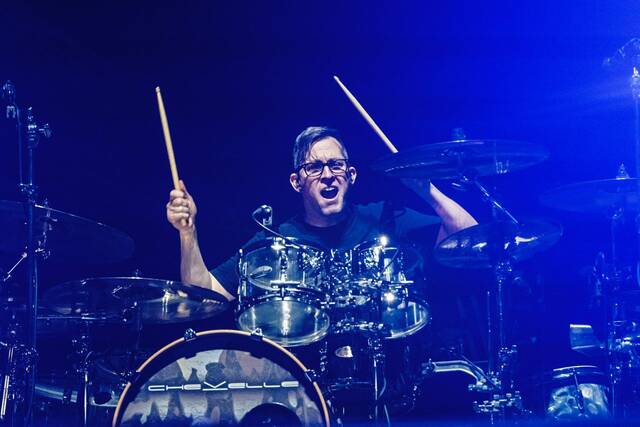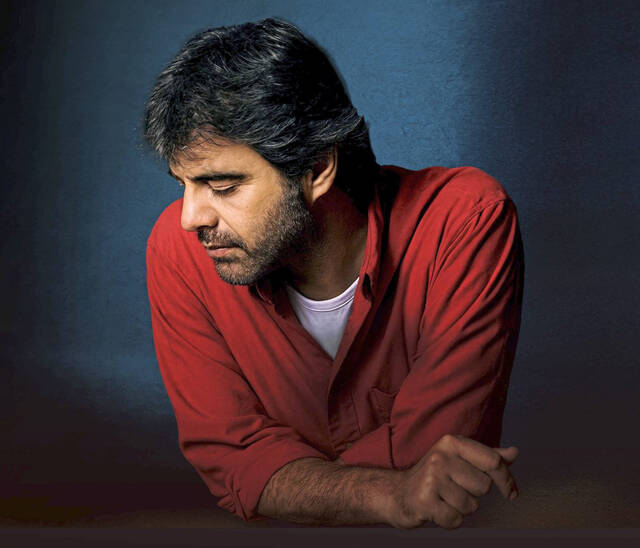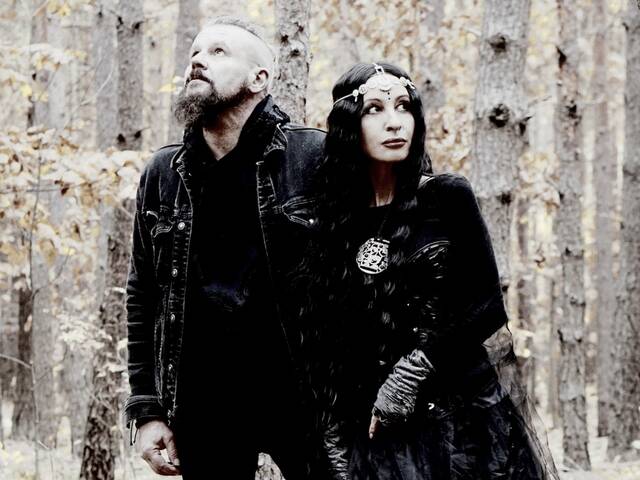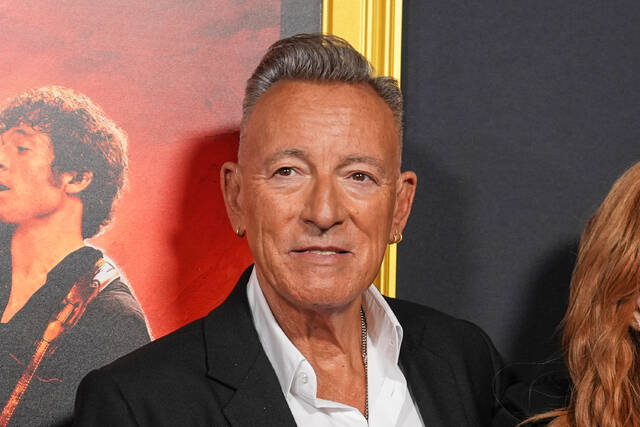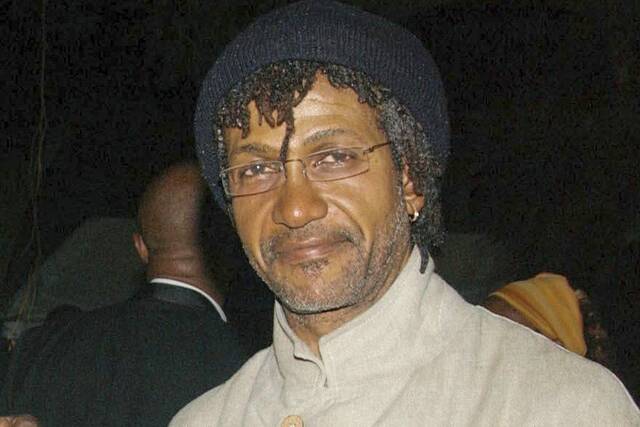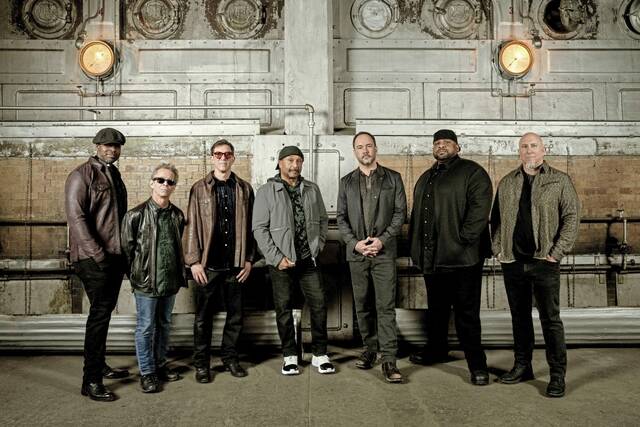The new Chevelle album has been in the works for the past two years, with drummer Sam Loeffler saying it’s in the home stretch.
”We kind of did expect to have it done (already). It’s like pulling teeth,” he said in a recent phone call from the band’s Chicago studio. “This is what I described: Writing an album and doing all that is like pulling your hair out and then trying to put it back in. Writers love having written, is what I learned. It’s just torturous on my brother. It’s torturous because there’s just so many factors to making something great.
“And then the longer you can live with it, the more changes you’re gonna make. So that makes you never want to put it out. You never want to pull the pin and throw the grenade because you’re like, well, it gets better every time I look at it.”
The melodic hard rock band comprised of Sam and his brother Pete on vocals/guitars, known for hits such as “The Red” and “Send the Pain Below,” are taking a break with a three-week tour that includes a stop Aug. 5 at Stage AE in Pittsburgh.
The new 10-song album — Loeffler sounded hopeful about a September or October release — will be the follow-up to 2021’s “NIRATIAS,” the band’s final release with Epic Records. Even when the album is released, it may not ever be truly “done.”
“That’s how Pete looks at it, too. He says it’s just a snapshot of what you’re doing today,” he said. “The other thing is we’re doing it different than I would say arguably most people. Most people just have their A&R people go and look for good songs from writers and then they find 10 songs … and their artists listen to the song and maybe work on it a little bit with the person that wrote it, and then they put it out as theirs and then they go and they perform them.
“That’s an entirely different process from them trying to create something from nothing, starting the process. Our really good friend is our agent Casey. She said to me, I can’t imagine the to-do list after you finish a record cycle of like OK, what do you got to do today? ‘Write a hit album, a hit record.’ It’s daunting and everybody’s job is hard, I get it. If it’s worth something and you enjoy it at the end of it, you look back at it and you say I created that, then it probably was hard to do.”
Related
• Interview: Pittsburgh-born Craig Burletic does double duty as bassist for Tyler Childers, El Dorodo• Mastodon bassist Troy Sanders talks about 20th anniversary of 'Leviathan' ahead of Pittsburgh show
• 2024 Pittsburgh area concert calendar
Their first release with Alchemy Records will be self-produced, and it’ll probably be the last time they do that. (Kemble Walters, the band’s touring bass player, has production experience, so he’s been helping to engineer the record.)
“Pete says, ‘No, I don’t think I’m ever doing this again.’ It’s too hard,” he said. “You really do need to have peers to be able to take things away from you and say, ‘Stop painting, no more birds in the sky. It’s done.’”
As for what the new album sounds like? “We’re always skewing towards heavy,” Loeffler said. But the final two songs Chevelle was working to finalize aren’t like the rest of the album.
“These two songs that we’ve been working on right now are definitely different from everything we did,” he said, “although ‘NIRATIAS,’ our last album, I think was a really important snapshot of what we’ve been learning about writing and about music and stuff. This one definitely sounds different than just rock music, definitely different.”
An important aspect has been a search for further evolution and growth with each of their albums.
“That’s definitely true,” he said. “Whether people like it or not remains to be seen, but there’s definitely growth for sure.”
Loeffler also touched on what it’s like dealing with Alchemy Records, the music business, their debut album and their live show:
On the changes between Alchemy Records and Epic:
There’s not this big machine that you kind of go through. Like some people at Epic we’ve really loved and we still work with them, which is great. But it was also there was sort of this thing where, OK, let’s see if this works. Let’s send this through the pipeline, whatever; whereas with Alchemy, we’re just dealing with our guys directly. It’s like, OK, let’s just do this. I’ll say what do you think, can we do this? He’s like sure, we can do it. It’s not like, let me look into it or see if we can find the money or whatever. I’m talking to the person who has the money or doesn’t have the money for that matter. (laughs) That’s part of it, definitely.
On the different environment of their new label:
But I think the other thing is to where Danny (Wimmer) and Joe (Guzik) and Dino (Paredes) are creating this thing where it’s kind of a little bit of old-school music mentality where you go to their offices, and it’s like there’s all these musicians, and there are people there working on stuff, and it’s very much like a music scene. And I feel like when we were just there a couple months ago in their offices, it felt like that. It was really cool because back a long time ago, we would go to Sony at 550 Madison Avenue and it kind of felt like that, right? There was music being played in the offices and you’d see other bands and you’d run into Rob Halford or Ozzy Osbourne. Literally, those are things that happened to us. And it was really this cool environment, and it definitely fell away with the past couple years because it’s just everything changes. Well, with Alchemy, it feels like that, which is really cool. It’s a really positive, positive thing.
On how that environment helps:
I think it definitely makes you feel more comfortable. That’s a part of it, but also it makes you feel special again. And I think right now we’re struggling a little bit with so much music and so many things and blah, blah, blah, that we forget that it is special, that when people put time, effort, energy into creating something, that it is special, right? Even if it stinks (laughs), which happens.
On being burnt out on the music business:
We definitely learn to live within it. Although, you can’t be in the music business and not be burnt out on it. That’s impossible because the internet came and essentially beat the music business to a pulp so that it was on life support. And then streaming came in and stomped on the cord that was keeping the music business alive. So it is regrowing. I think, that is happening. And rock music right now specifically feels like it has a pretty cool resurgence. I think we’re seeing some people take really good things and make them into, integrating them into more music. And then we’re also seeing straight rock have a resurgence as well, which is great.
On the resurgence of rock music:
I think there’s still people finding Led Zeppelin and AC/DC. And at the same time, now it’s great (that) people are finding Chevelle, they’re finding Nirvana. I talked to this kid the other day, I don’t know, 20-year-old kid, and I was like, have you ever listened to Nirvana? He’s like, yeah, and he’s wearing a Nirvana shirt. I said, you know like one song, you should actually listen to that band. I wasn’t coming down on him, I’m just saying, if you like that, you would be really surprised at what else there is. And that’s something that’s sort of gone away, and I think that with a resurgence of rock music, people can do that because it does have a soul. There is a soul to it, it goes all the way down. And there is something to find. Whereas with a new artist that’s 25 years old and has put out two pop hits or something like that, there’s not much. Sure, you can go and look and see what they eat every day for breakfast, and you can be invited to that. That’s OK, that’s a thing if you enjoy that. But it’s not really a look into their art from 10 years ago, from 15 years ago to 20 years ago, to be able to see this development. Like when you find an artist that you love, like back when I found The Minutemen, and was able to look at all those albums as they went on, and then those musicians and what they did later, and it turns out to be a journey. And that’s one of the things I think that’s always been special about rock music compared to pop music, where there’s not much depth there, I think.
On putting together a setlist when they’re not promoting an album:
We just haven’t done that many shows since covid. And so we missed a real album cycle with ‘NIRATIAS’ because we put it out and we couldn’t tour around it. So by the time we could tour around it, we were a year past that album, a year and a half past that album. So it kind of feels like the album that never happened. … We still kind of feel like we’re on the ‘NITRATIAS’ cycle. But it’s going to be really difficult to not play one of these new songs on this upcoming run, which we might just do it anyway, because you’re excited about it.
On the 25th anniversary of their debut album, “Point #1” and not playing any of those songs live in a while:
We were playing them, but we realized that there was only like five people that knew them. So we might bring one of those back, play “Point #1” or “Prove to You” or something like that. That would be fun to do. And Alchemy actually brought up us rerecording that album, like you should rerecord it and put it out again. Although with Steve Abini just having passed, it would be nice to promote that as well. But the person that owns that album, which is not us, we cannot get it back. We’ve tried so many times. And they just, they don’t promote it. They won’t give it. They won’t sell it to us. They won’t do anything with it. It’s pretty frustrating.
On their live shows:
We still try to bring that kind of enthusiasm. I mean, it’s all real too. That’s another thing is you’re playing with this sort of stacked deck now because we go play shows, and everyone else is playing a ton of tracks. Sometimes they’re not singing, they’re not playing drums, they’re not playing guitars and they’re just kind of jumping around performing on stage. But they’re playing their album back on a PA, which sounds amazing, right? And then we go out there and we’re playing everything, no tracks, no nothing and Pete’s singing everything and then people are like, you sound really good. Why don’t you sound like them? I’m like, because they got 40 tracks playing and then the keyboards underneath it with low-end stuff. You can’t compete with a laptop as far as like the sound is coming out of it, but you can compete with the enthusiasm for your music and you can for the show, so we’re doing it for real and if that matters to people, awesome. If it doesn’t, that’s OK. I don’t have anything against anybody not doing it. I think that it’s just part of where we’re at with music. It’s just the way things went. It’s like people not playing real amplifiers anymore. They play through little tiny boxes that are digital and it’s like that’s OK, it’s working. It sounds really, really tight. … But the other thing is too is that you can tell the difference, and I know a lot of people can’t tell the difference because they only know one thing now. They’ve only seen people not play. I don’t know how to say it. I’m not trying to throw shade or be a (jerk) at anyone that’s doing it. It’s just, this is where we are in music and everything, so I’m not saying that anybody’s doing anything wrong. All I’m saying is that we’re doing it this way, and it’s just a thing. We like it.



